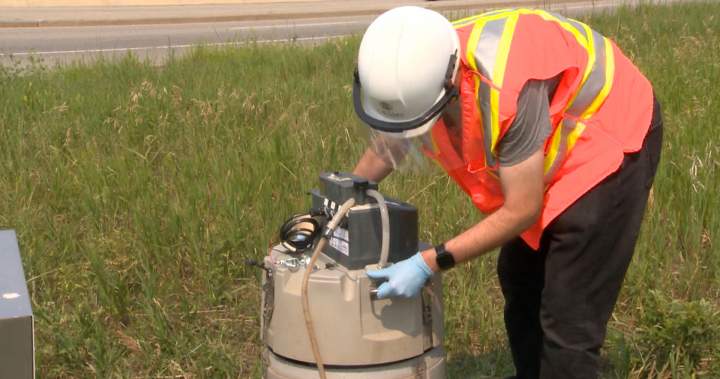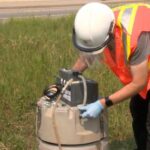In a pioneering public health initiative, Alberta health authorities have launched a comprehensive wastewater surveillance program to track measles transmission throughout the province. This innovative approach comes as Canada faces a worrying resurgence of this highly contagious disease, with public health officials seeking more effective early warning systems.
“Wastewater surveillance proved invaluable during the COVID-19 pandemic, giving us critical population-level insights weeks before clinical cases appeared,” said Dr. Deena Hinshaw, infectious disease specialist formerly with Alberta Health Services. “Applying this same technology to measles represents a significant advancement in our disease monitoring capabilities.”
The program, developed in partnership between Alberta Health Services and the University of Calgary’s Cumming School of Medicine, will analyze sewage samples from treatment facilities serving major population centers including Calgary, Edmonton, and Fort McMurray. The surveillance network aims to detect viral particles shed by infected individuals before widespread community transmission occurs.
Alberta’s initiative follows concerning developments across Canada, where vaccination rates have declined in some communities over the past decade. According to recent Public Health Agency of Canada data, national measles vaccination coverage sits at approximately 90% – below the 95% threshold experts consider necessary for effective herd immunity.
“What makes measles particularly challenging is its extraordinary contagiousness,” explained Dr. Jason Cabaj, medical officer of health for the Calgary zone. “A single infected person can transmit the virus to 12-18 unprotected individuals, which is why early detection through methods like wastewater testing is so valuable.”
The technology operates by identifying genetic material from the measles virus in sewage systems, creating a complementary surveillance method alongside traditional clinical reporting. Health officials emphasize that this approach provides population-level data rather than identifying specific infected individuals.
Initial funding for the program comes from a $2.4 million federal grant aimed at expanding infectious disease surveillance capabilities nationwide. Alberta’s health ministry has committed to sustaining the program with provincial funding following the pilot phase.
Public health advocates have praised the initiative while emphasizing that vaccination remains the most effective protection against measles. “Surveillance tools like wastewater testing are important, but they don’t replace the need for robust immunization programs,” noted Dr. Joan Robinson, pediatric infectious disease specialist at Stollery Children’s Hospital in Edmonton.
Recent Alberta Health Services reports indicate several isolated measles cases within the province over the past six months, with three cases confirmed in Calgary and two in Edmonton. Officials stress that the wastewater program aims to prevent these isolated cases from developing into larger outbreaks.
The initiative will also involve significant public education efforts about measles vaccination, particularly targeting communities with lower immunization rates. Health authorities plan to use wastewater data to guide these targeted education campaigns.
As this surveillance program takes shape, questions remain about how effectively we can balance technological monitoring with fundamental public health measures. Will advanced detection methods like wastewater surveillance meaningfully impact vaccination rates, or do we need to address deeper issues of vaccine hesitancy at their cultural and social roots?
For more information on infectious disease monitoring in Canada, visit CO24 News or for specific Canadian health initiatives, see our Canada News section.























